The Future of an Illusion: Film, Feminism, and Psychoanalysis
by Constance Penley
€35,00
Minnesota: University of Minnesota Press, 1989. First edition. 8vo (22,5x15cm), original laminated card wrappers. 232pp. Text in English. Colour faded on spine with original price sticker at rear cover. Very tiny surface scratches at top corner of front cover. Near fine.
Constance Penley was one of the founding editors of Camera Obscura in 1974, a journal providing innovative feminist perspectives on film, television, and visual media. Penley received her Ph.D. in rhetoric from the University of California and is currently professor at UC Santa Babara in Social Sciences & Media Studies.
The Future of an Illusion is a collection of Constance Penley’s essays, published primarily in Camera Obscura and Screen, documenting her central role in the development of feminist film theory. The book features nine essays divided into five thematic categories, employing a mixture of concepts from feminist theory and Freudian and Lacanian psychoanalysis.
Topics range from avant-garde art and film to popular culture and television, with the categories: Feminism and the Avant-Garde, Feminism and Film Theory, Feminism and Femininity in Godard, Sexual Difference in Popular Culture, and Feminism and Pedagogy.
In the preface Constance Penley notes:
“To present the sequence of these essays as a natural or characteristic evolution of feminist thinking over more than a decade would be to give a too tidy account of their emergence. Rather, they can best be seen as a series of provisional responses to specific and often very fraught debates in contemporary feminism, debates about representation and sexual difference, feminism and the avant-garde, the place of woman in classical Hollywood cinema, the feminist critique of film theory, pornography and eroticism, feminism and popular culture, and feminism in the academy.”
In her essay Time Travel, Primal Scene, and the Critical Dystopia, Penley examines and compares James Cameron’s The Terminator with Chris Marker’s La Jetée from a Lacanian perspective.
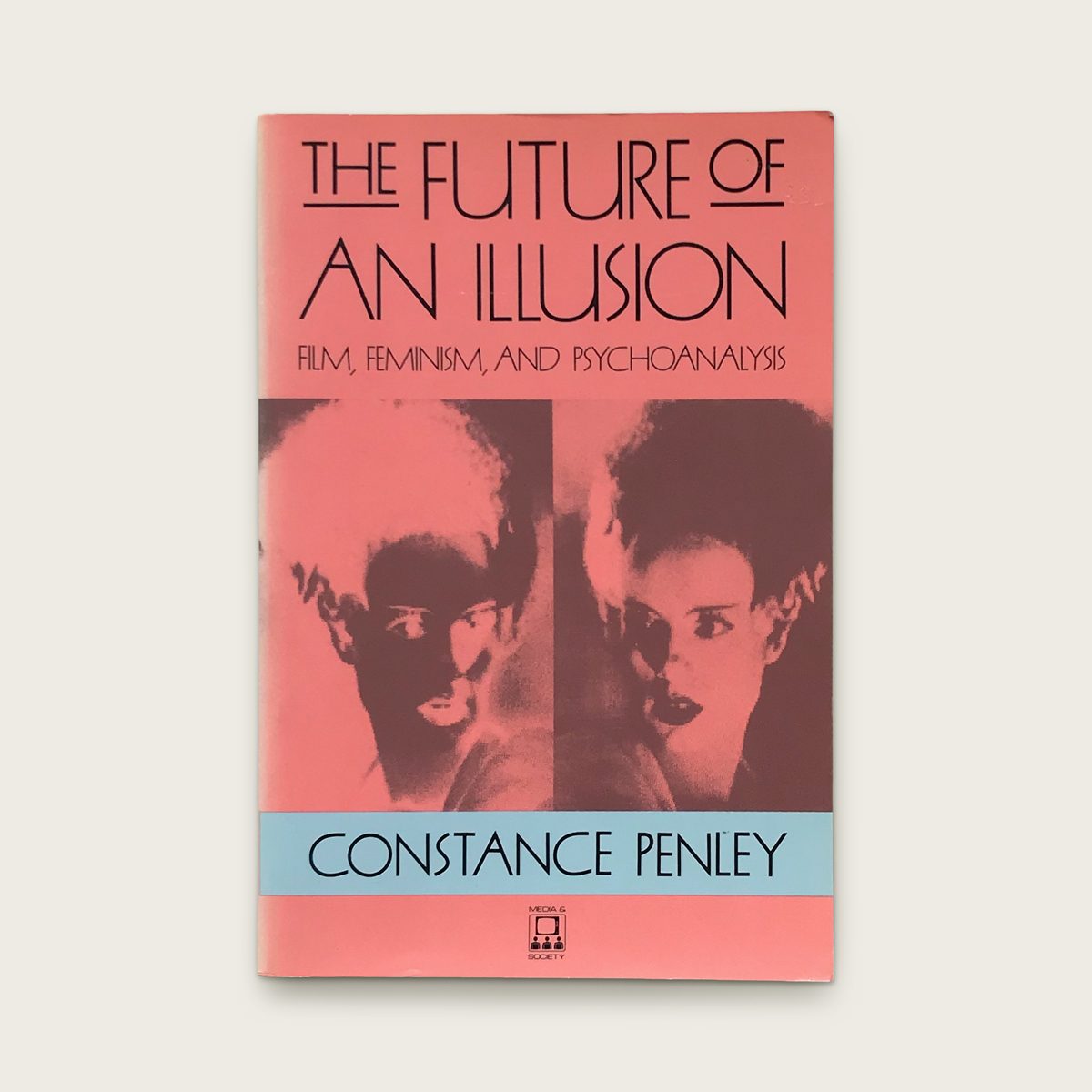
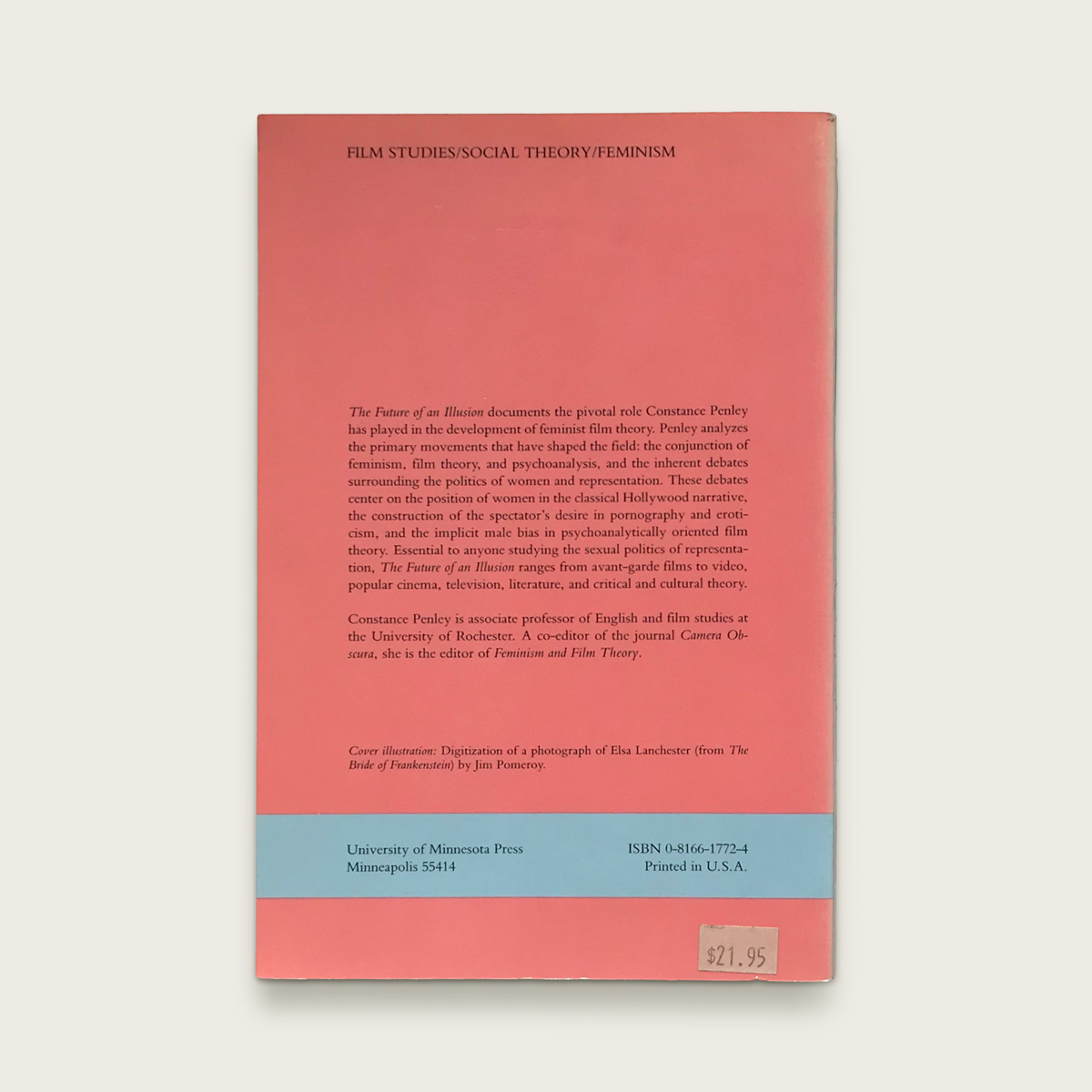
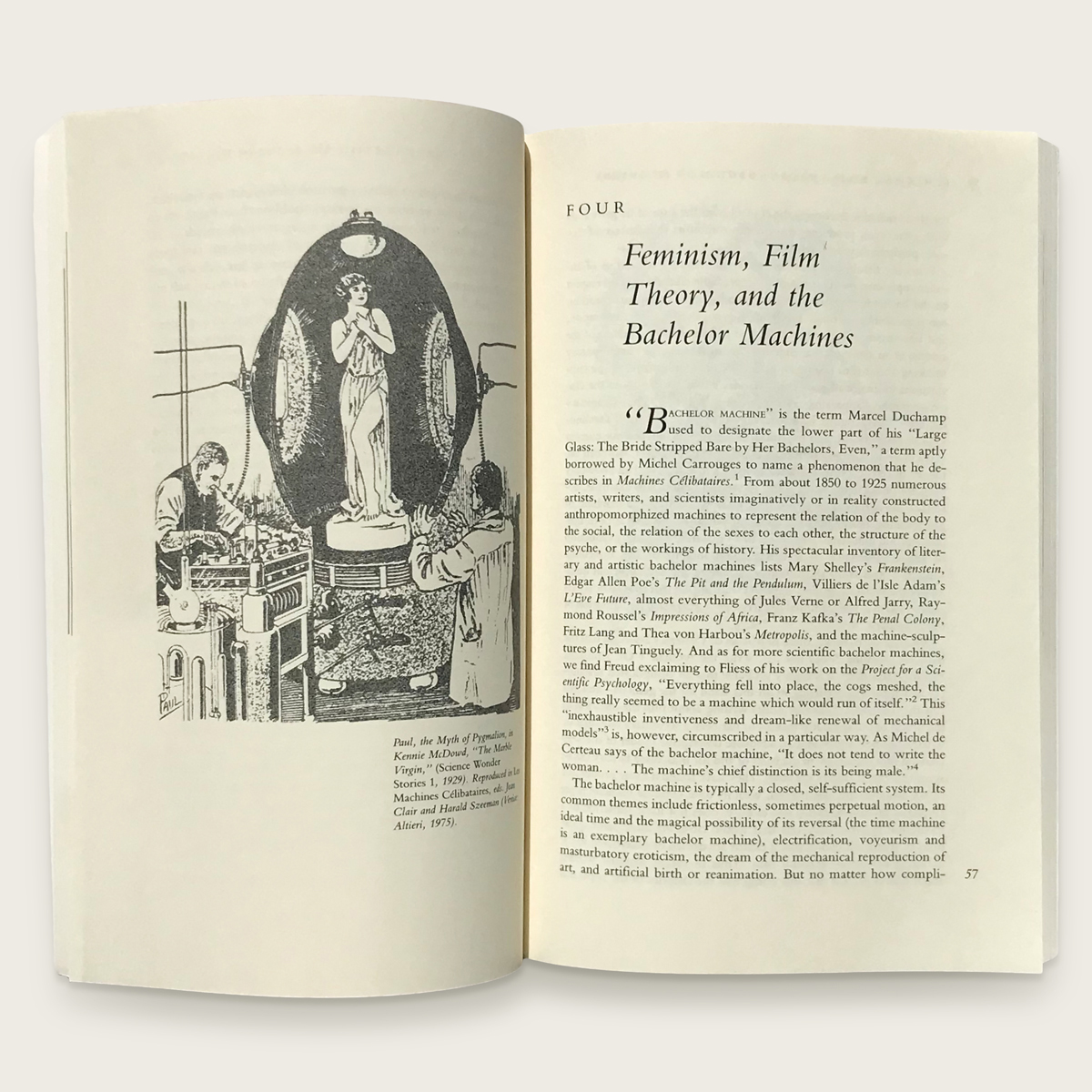
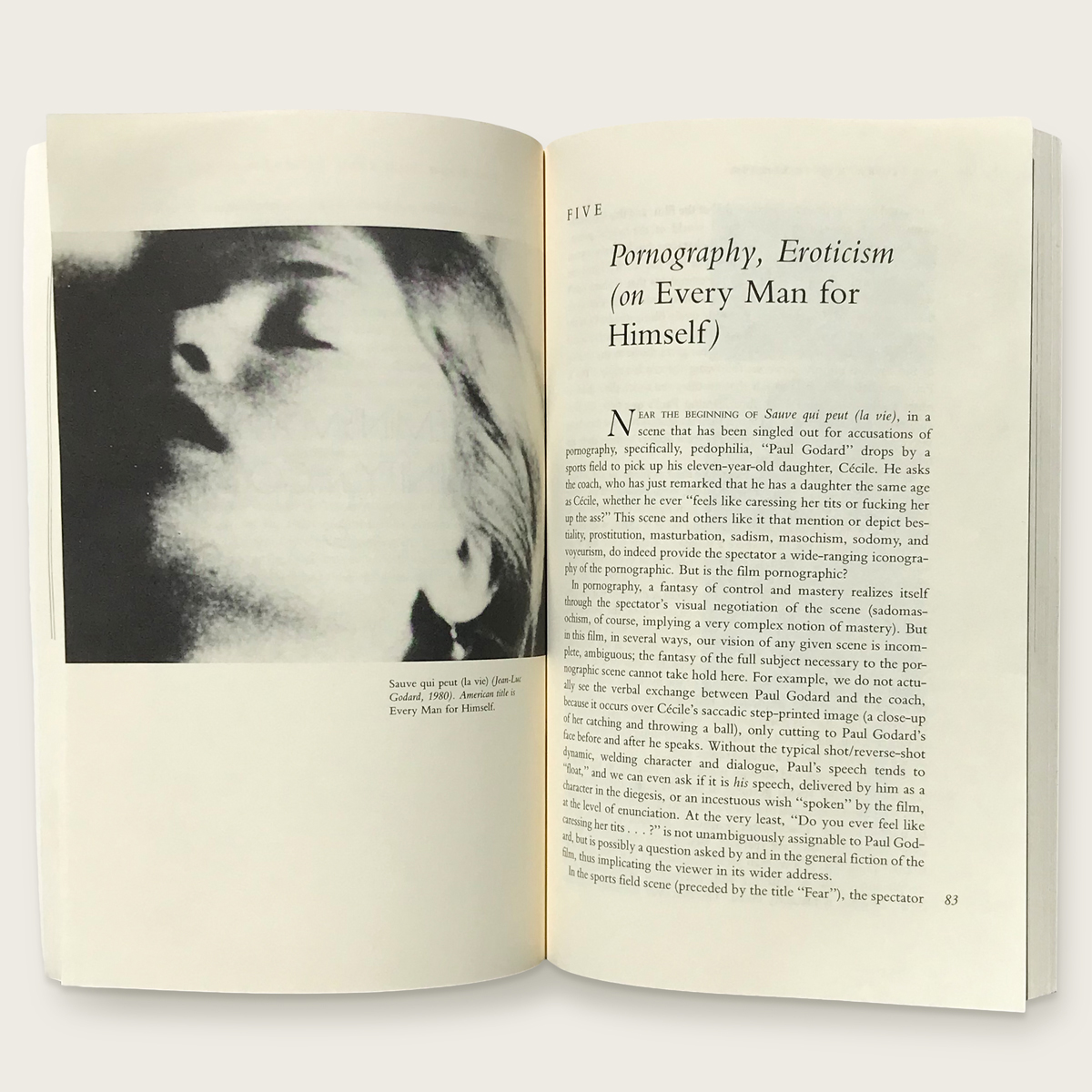
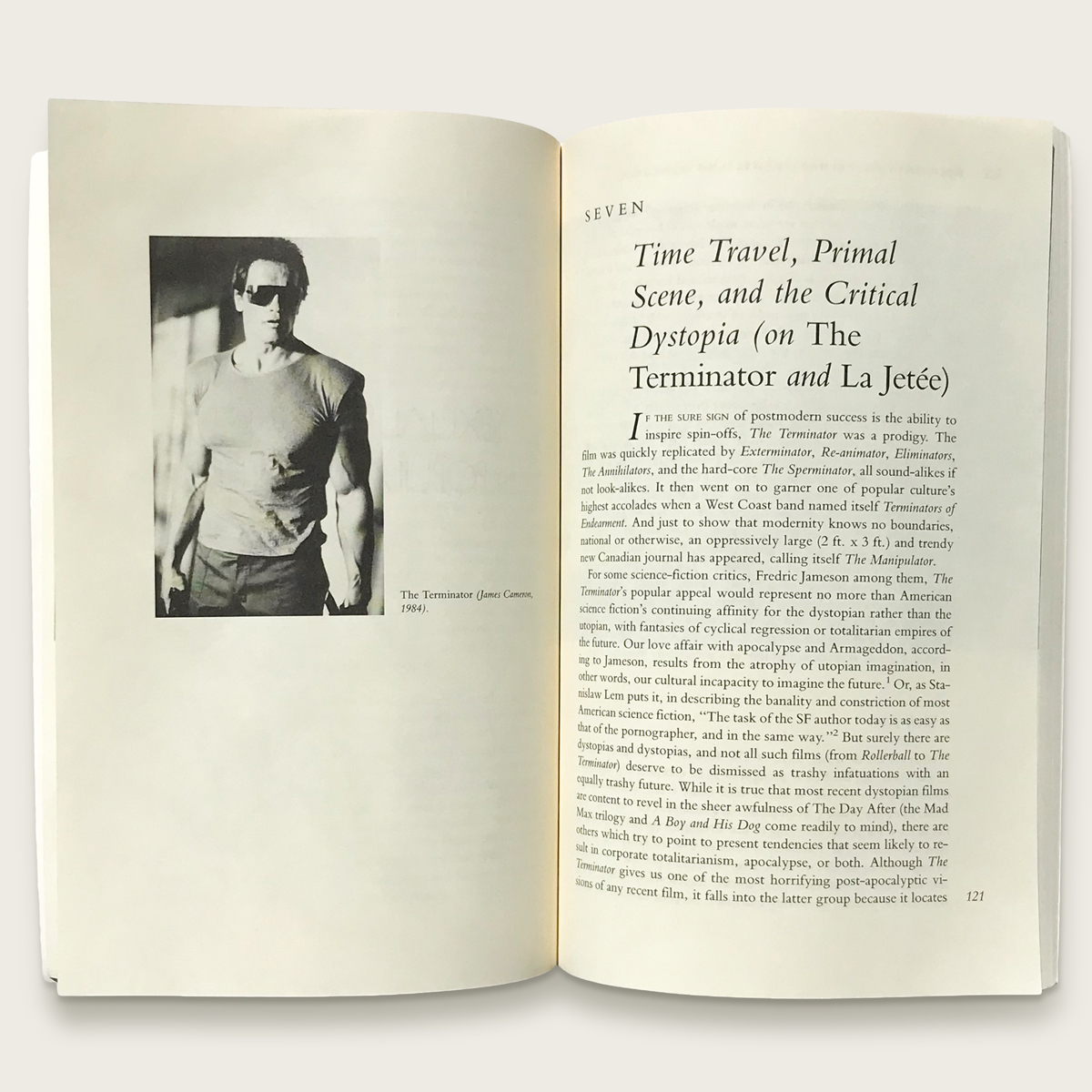
![[Chris Marker] Oasis: Fourth World - Semiotext(e)](https://chunkingbooks.com/wp-content/uploads/2021/04/oasis_01-300x300.jpg)
![[Chris Marker] La batalla de Chile: la lucha de un pueblo sin armas [inscribed]](https://chunkingbooks.com/wp-content/uploads/2021/04/batalla_01-300x300.jpg)

